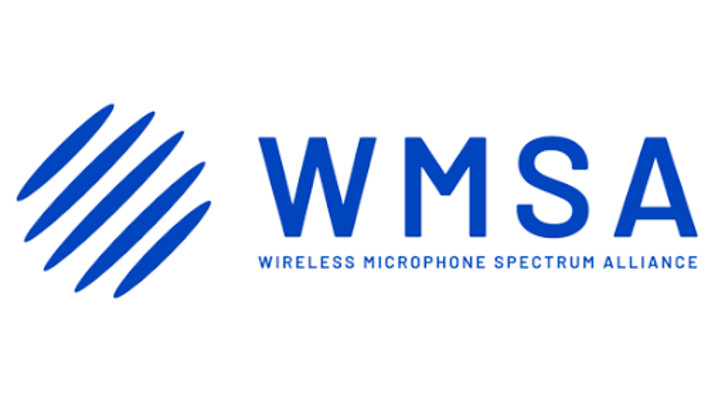Timely Tips for the NAB Floor
The professional video industry's #1 source for news, trends and product and tech information. Sign up below.
You are now subscribed
Your newsletter sign-up was successful
JOHNSTON, IOWA: Every year about this time I am asked to write in the Digital Journal about what I will be looking for while I am in at the NAB conference.
This year, IPTV will begin final work on converting the studios and production facilities to HD, so I would like to say that I will spend most of my time looking at HD production equipment.
Unfortunately, like the philosopher Diogenes I will be looking for an honest man, or in our politically correct culture, an honest person. He was also referred to as Diogenes the Cynic and for better or worse, I find myself in that same philosophical group.
SERVICE AGREEMENTS
So while I am at NAB, I will indeed be looking at HD production switchers, cameras, character generators and all of the other fun stuff that goes into building an HD facility. However, the first thing that I will ask to see regarding any equipment is a copy of the software and hardware service agreement associated with the equipment. Doesn't that sound exciting?
Service agreements have become the catchall for explaining why things don't work correctly. Here is a quote from a service agreement that I have been asked to sign. I won't mention the vendor name since this is just an example and it is not unusual:
"The Customer acknowledges and agrees that: (a) software in general is not error-free, and agrees that the existence of such errors shall not constitute a breach of this Agreement..."
In this one statement, the vendor has eliminated any requirement that their product be finished before it goes to market. They can sell you an untested beta version with bugs and other undocumented features that they hope to fix down the road and the customer has to accept this. Pardon me, but when did the product working correctly become an option?
Another question I have is, why are bug fixes covered under the same document as software upgrades? Aren't the two different? A bug is a defect in the product that prevents it from working correctly or at all. An upgrade is an improvement that adds new features.
Bug fixes should be part of the warranty and not part of a service agreement. There are a number of systems at IPTV that are software-based that we have no service agreements on because we have corrected the bugs and the systems meet our needs. Now true, some of them are running on DOS 6.2 from 1980, but "if it ain't broke, don't fix it."
The scary part of this is that this "service agreement" philosophy is showing up everywhere. A few years ago, we noted that the high intensity strobe lights on one of our towers were becoming increasingly less reliable, and we were under notice from the FAA.
We purchased new high-intensity strobes and had them installed and after three years, we have found that the new ones are less reliable than the ones we replaced. At last year's NAB, we met with the vendor to discuss this problem and their solution was for IPTV to purchase a service agreement and they would come out once a quarter and replace the defective units.
In essence, their solution was for IPTV to pay them more money to regularly repair the unreliable product that they sold us that had never worked as well as the previous unreliable product that was replaced.
I am told that I turned red while talking with this person and I had to walk away before I said something I'd regret. But to my point, the manufacturer is making no attempt to solve the problem because it is in their best interest not to. Service agreements are a source of regular income and quite frankly, I think they have their place, but not as a substitute for delivering a working reliable product.
What about vaporware? Does anyone remember when you'd be in a conversation with a manufacturer at NAB and they would tout that their product wasn't "vaporware" like their competitors? When did it become acceptable for a sales rep to tell the customer that the capability exists and yet when the product is delivered, the customer finds out that the feature is in the planning stage but the code hasn't been written yet?
There are a few projects here at IPTV that have gone awry because we did our operational planning based on the capabilities that we were sold that were not in the delivered product.
Two projects of $1 million or more are top of mind right now, one that is more than two years late and has yet to be closed, and the other is so far off track that we may simply return it and let the lawyers sort out the solution.
From conversations that I have had with my peers, I know that I am not alone in my concern and frustration about the direction that we are headed. But what do we do about it? Over the last few years, I have become more involved in the industry. I sit on a number of standards groups at SMPTE. I am surprised and dismayed at how few end-users participate.
The committees for the most part are made up of manufacturers and my experience has been that they welcome the input of end-users; it helps them stay focused on the goal of developing standards for products that meet the needs of the customer.
I know that participating takes time but anything of value takes an effort, so get involved. Speak up; don't just accept the status quo. Service agreements were written by lawyers and therefore everything in them is negotiable.
Last year at NAB, I did a presentation on one of our unfinished projects and I mentioned by name how much a manufacturer was proposing we pay for a service agreement and that the amount was ridiculous. Immediately after the presentation I was told that the president of the company wanted to meet with me and right after NAB, that manufacturer came back to me with a new service agreement that is one-third the original proposed cost. Now if we don't send the complete system back, we may actually be able to do business.
So if you're looking for me at NAB, I'll be the person sitting at a table reading the pile of service agreements and determining if I can afford to go back and see a demonstration of the equipment. Stop by and say hello and we can compare notes.
The professional video industry's #1 source for news, trends and product and tech information. Sign up below.
Bill Hayes is the former director of engineering and technology for Iowa PBS and has been at the forefront of broadcast TV technology for more than 40 years. He’s a former president of IEEE’s Broadcast Technology Society, is a Partnership Board Member of the International Broadcasting Convention (IBC) and has contributed extensively to SMPTE and ATSC. He is a recipient of Future's 2021 Tech Leadership Award and SMPTE Fellow.

